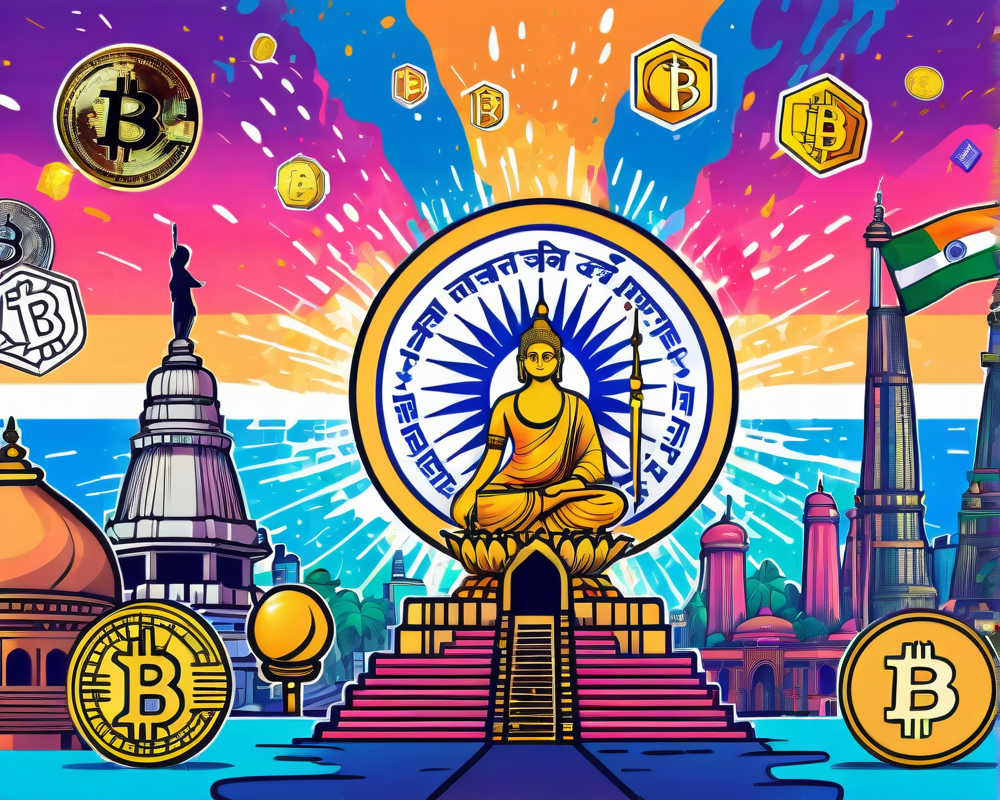RBI’s Crypto Crackdown: A Tidal Wave of Regulations
In April 2018, the Reserve Bank of India (RBI) dropped the regulatory hammer on cryptocurrencies, effectively dousing a budding digital revolution in its tracks. Deputy Governor Bibhu Kanungo made it clear: banks and financial institutions had to sever ties with anyone touching virtual currencies. Picture this: a popular party abruptly shut down, and everyone is left standing in awkward silence, unsure of what to do next.
This blanket ban sent crypto exchanges scrambling, some even shuttering their virtual doors, while others faced legal predicaments resembling scenes from a courtroom drama. It might have felt like a scene straight out of a film where the lead character’s grand plans implode at the worst possible moment.
Regulatory Uncertainty: The Ripple Effect
Long before Kanungo’s stern words rang out, the RBI had been warning about the risks of cryptocurrencies, painting them as volatile at best and fraudulent at worst. There was talk of Ponzi schemes and bubble bursts, and the government seemed more interested in wielding its regulatory gavel than finding a nuanced way forward. It was akin to throwing a toddler’s temper tantrum over a toy instead of addressing the underlying issues of sharing and conflict resolution.
This ban prompted lawmakers to propose a bill with heavy penalties for cryptocurrency transactions, sparking fears of a ten-year jail term for offenders. Talk about a chilling penalty! Some industry experts viewed this approach as ineffective. Sidharth Sogani, CEO of a crypto rating firm, stated, “You cannot regulate what you can’t control. Bitcoin knows no borders.” Ironically, such a statement might invoke smirks from crypto enthusiasts everywhere.
Binance’s Bold Acquisition: A Beacon of Hope
Fast forward to November 2019, Binance, a titan in the crypto exchange world, decided to buy WazirX, India’s largest crypto exchange. The deal sent ripples of excitement through the crypto community like a surprise flash sale at a beloved store. Nischal Shetty, the WazirX CEO, channeled optimism into his remarks about the acquisition, stating that if banking restrictions were lifted, India could witness an influx of substantial crypto investments. It was a thunderous cheer in a world that was feeling pretty gloomy!
Binance’s acquisition was matched with a promise to integrate WazirX’s auto-matching peer-to-peer engine. This move enabled Indian users to trade stablecoins like Tether (USDT) for various cryptos on Binance’s platform. Like adding a new level to a complex video game, it opened the gates for new possibilities.
The Crypto Awareness Movement: Bottom-Up Education
Meanwhile, awareness initiatives like #IndiaWantsCrypto emerged amongst crypto enthusiasts, reaching over 500,000 views weekly. It became a rallying cry of sorts. Shetty reported that prior to the campaign, many believed crypto to be illegal in India, but it was merely a banking limitation. By now, the public began learning that there were legitimate crypto ventures out there.
However, despite these positive movements, there were persistent undertones of skepticism towards the Indian government’s ability to respond effectively. Efforts made by financial experts often fell on deaf ears, resembling cries for help echoed into the void. Sogani stated, “They never got a positive reply” when appealing to the government. Perhaps it’s time for grassroots movements to flex their muscles and shed some daylight on crypto education.
Looking Ahead: A Glimmer of Acceptance?
At present, it appears that the Indian government might avoid a new crypto-related bill, but opinions are mixed. Could they possibly reconsider the blanket ban? Sumit Gupta, co-founder of a rival crypto exchange, voiced that we might be on the brink of regulatory evolution rather than outright obliteration, suggesting that the government might not willingly march toward a ban.
It’s evident that crypto enthusiasts are holding onto hope for a future where progressive regulations could allow them to thrive legitimately. One can only hope that as India’s crypto journey unfolds, the government will stop shying away and engage in meaningful dialogue with stakeholders.




